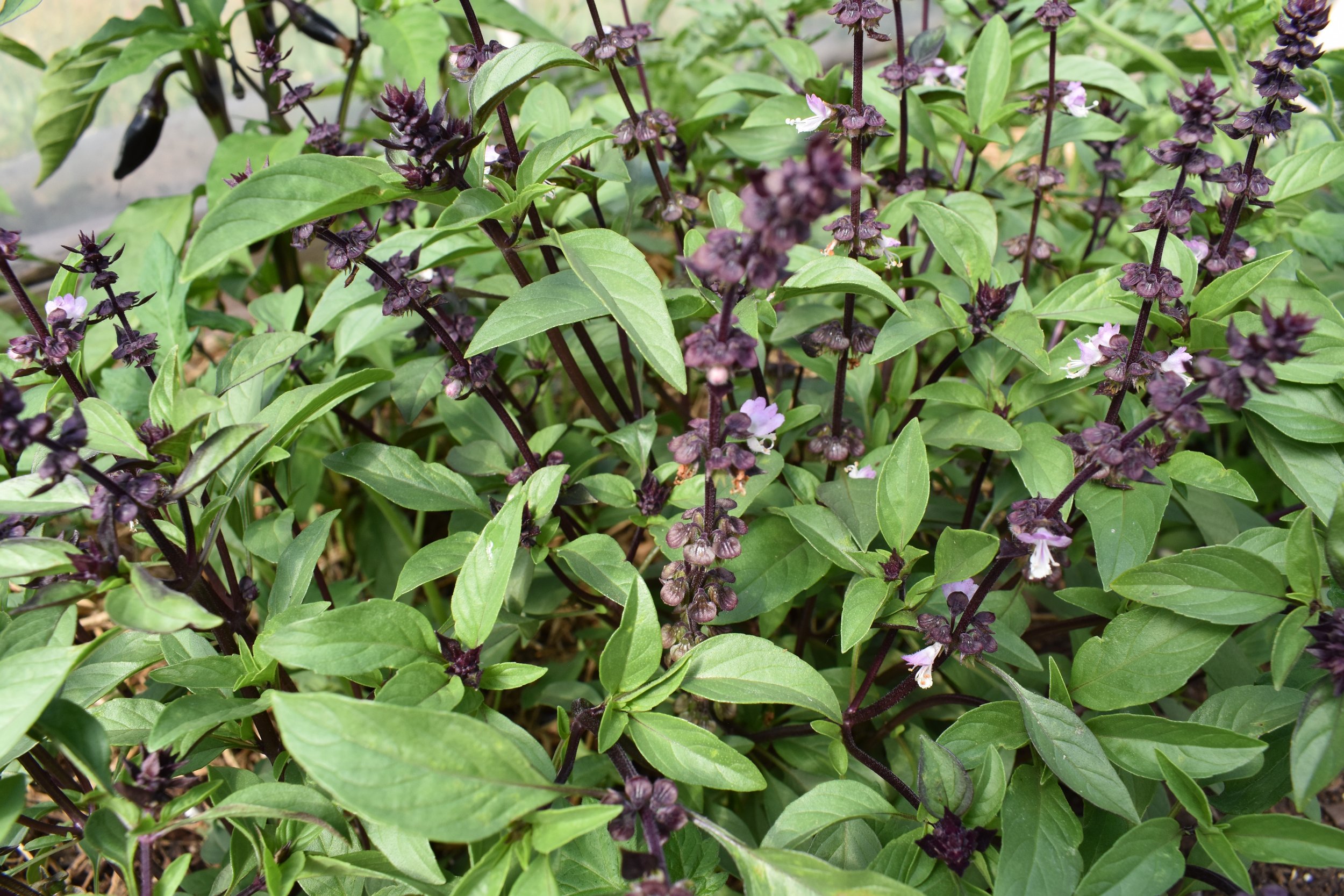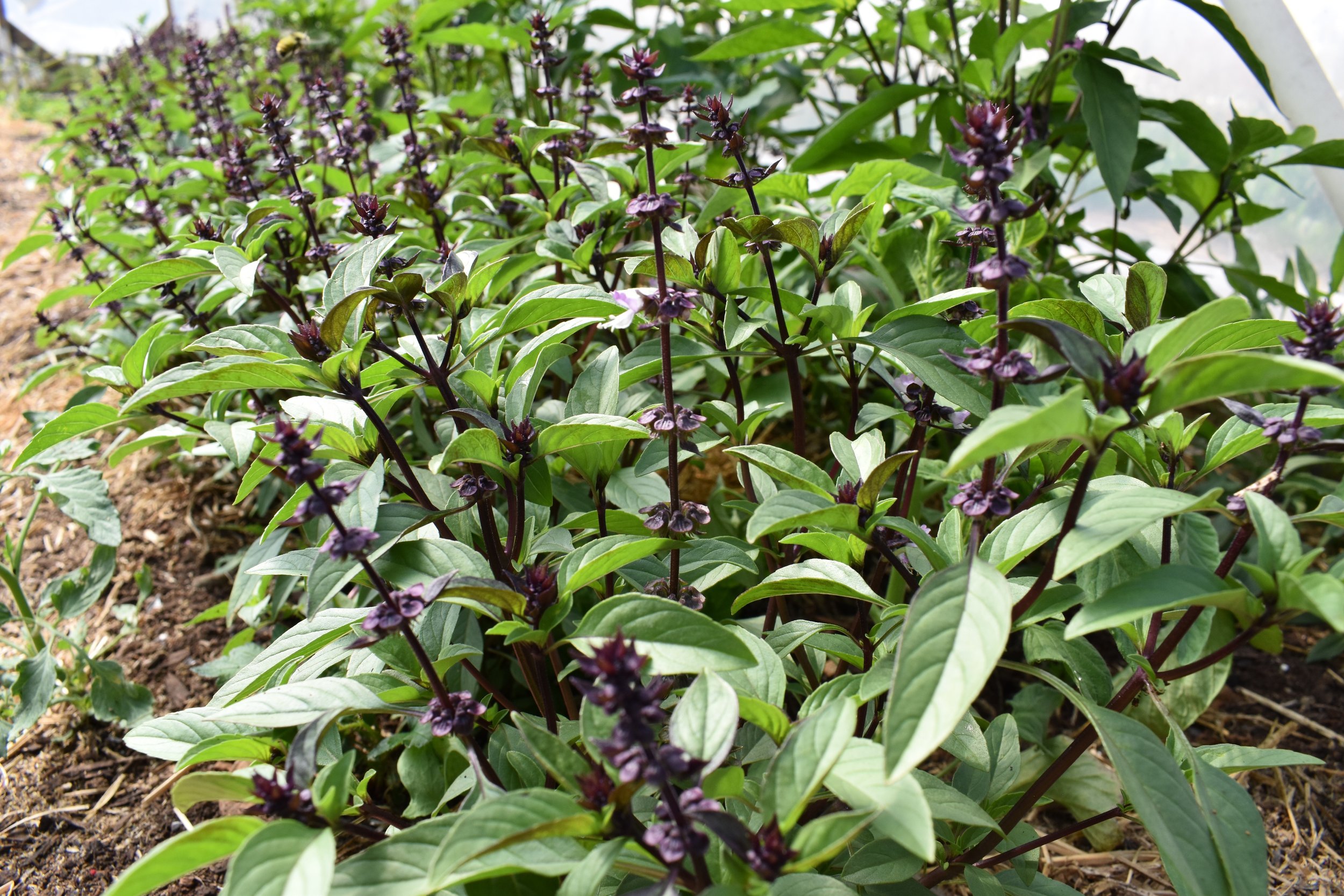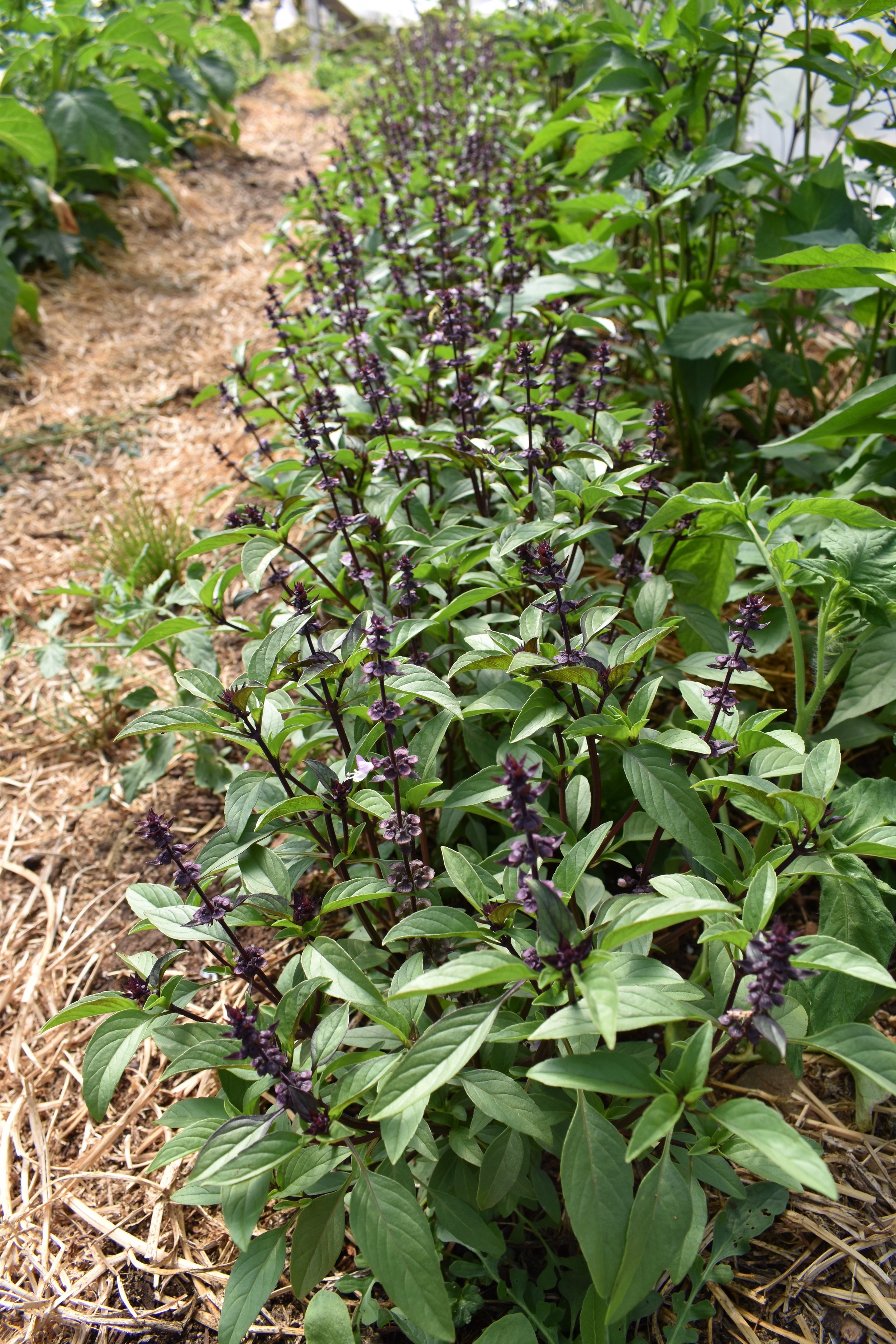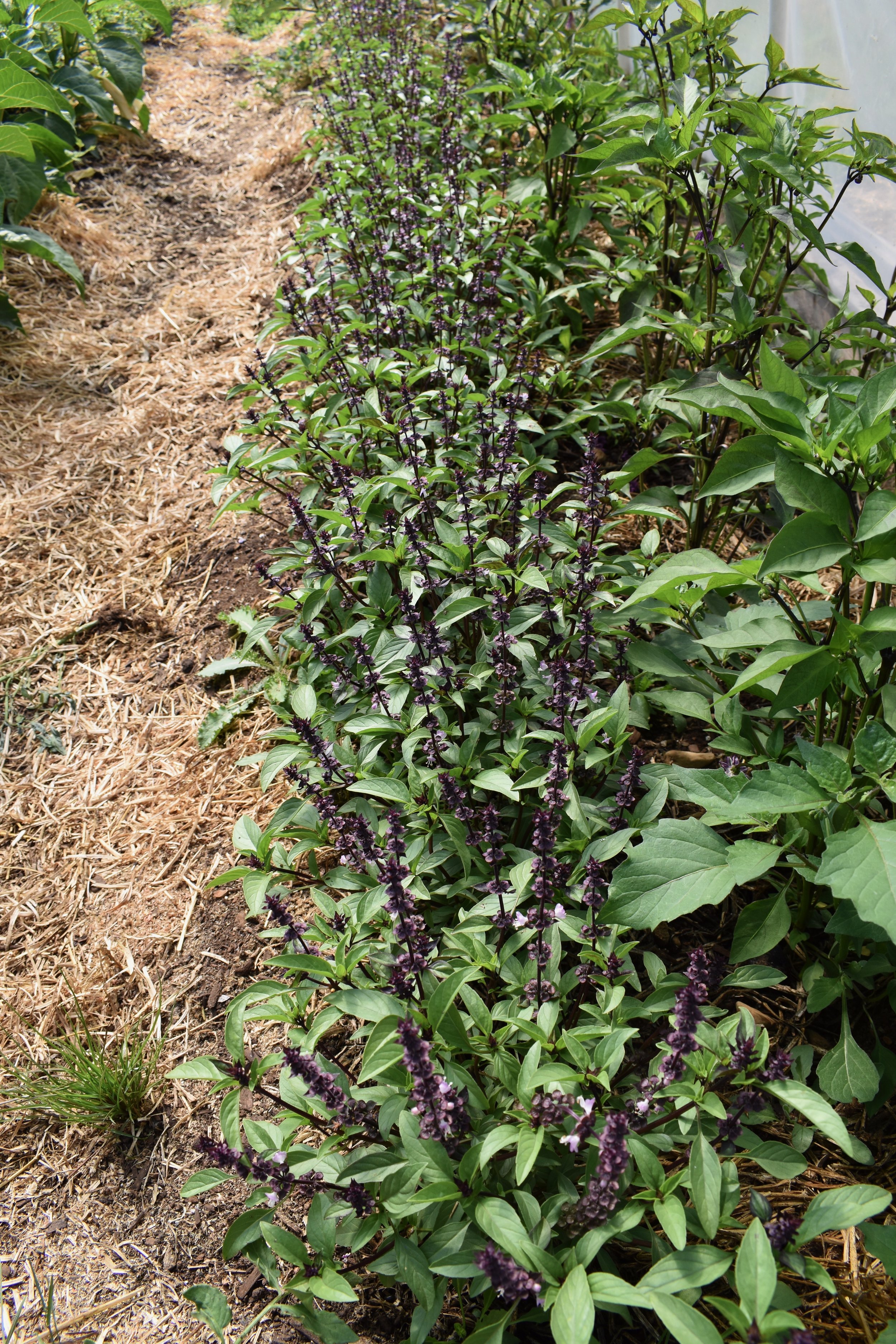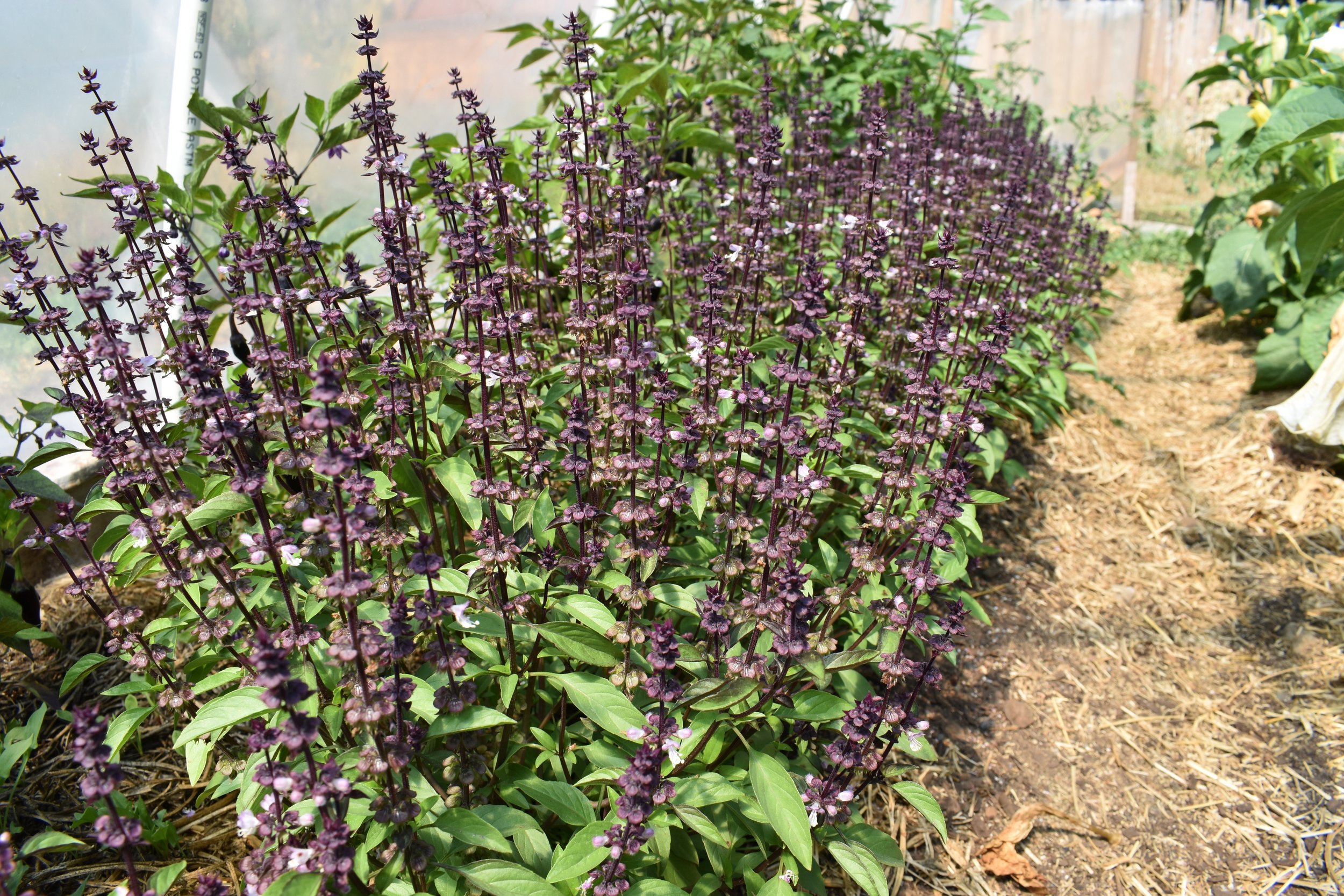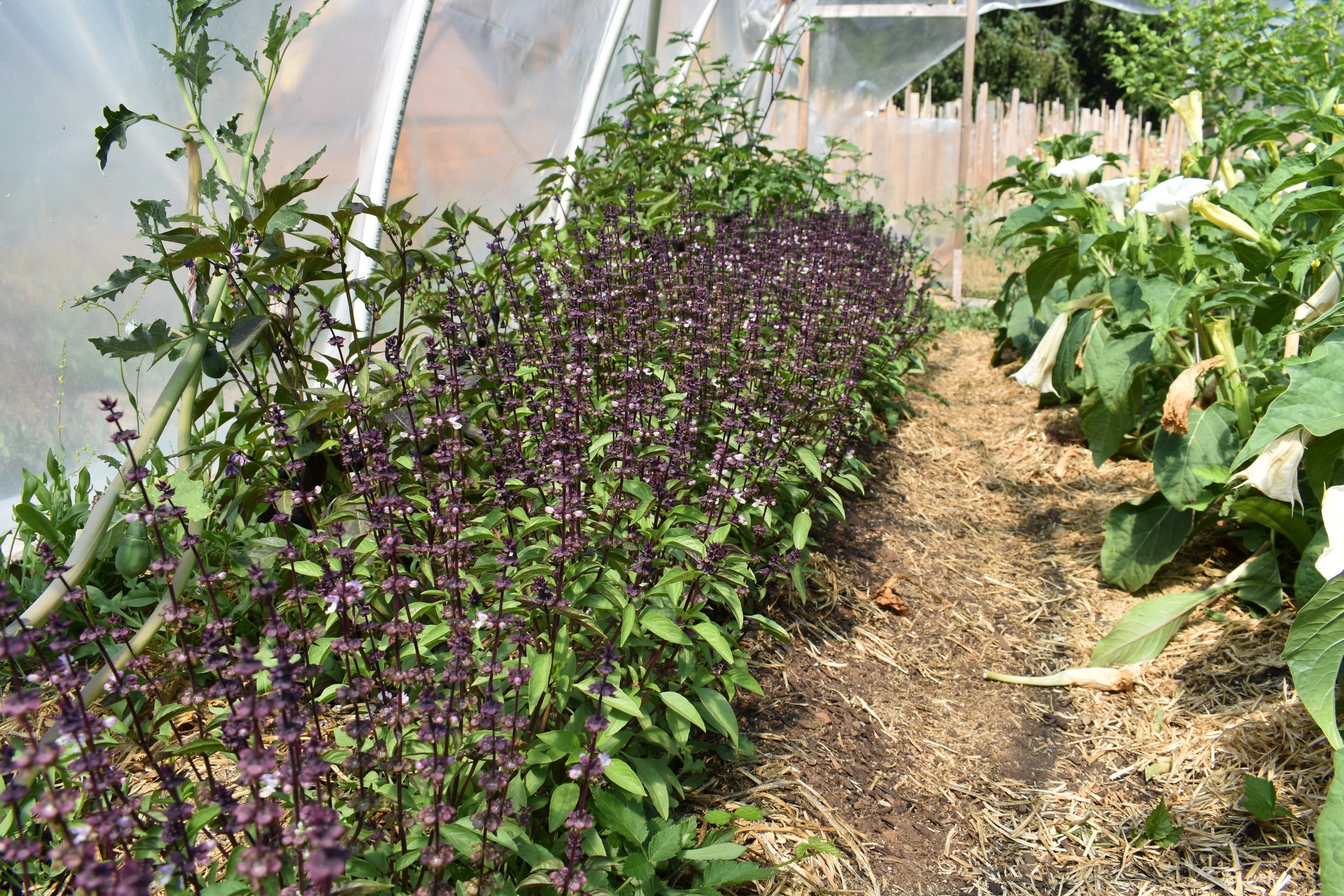Common Names
Anise Basil
Botanical Name
Ocimum basilicum
Plant Family
Lamiaceae
Life Cycle
Annual/Perennial
Native Range
Asia
Hardiness Zone
Perennial in zones 10-11. Grown as an annual in zones 2-9 or overwintered indoors.
Habit
Grows to 1ft tall and 8” wide with busy habit.
Sun/Soil
Full sun, well-drained fertile soil.
Germination/Sowing
Basil grows easily from seed. Here are a few things to keep in mind. Basil seeds need warmth to germinate, ideally around 21C. This can easily be achieved on a sunny window sill inside the house or with bottom heat in an outdoor cold-frame or greenhouse. On Southern Vancouver Island where our farm is located, we wait until mid-April or May before starting basil seeds.
Basil can also be started year round indoors, especially if you have a sunny window or full spectrum lights. It does great in containers, just make sure to add a bit of compost, seasoil, or other nutrient rich amendment into your potting mix.
Once germinated, encourage strong seedlings by giving them adequate sun and even moisture. Do not over water, basil seedlings are very susceptible to damping off. 'Damping off' is when the plants rot at the base of the stem and die. This is due to overly moist conditions that cause fungal and bacterial growth on the surface of the soil. It can be prevented by letting the soil surface dry out briefly between waterings once the seedlings are up.
Growing/Care
Basil is needier than many other herbs, but its needs are simple, and if you put the time in, the rewards are worth it! Basil needs a sheltered spot in full sun, adequate moisture, fertile soil and a bit of food now and then. The greenhouse is the idea spot for your basil plants, just make sure you water them frequently to prevent them from flowering prematurely. To help produce a bountiful crop of leaves, we like to fertilize our basil plants once every week or two for the first couple of months. We use a mixture of liquid kelp concentrate and fish emulsion.
Harvesting
Harvesting can be done by gathering the aerial parts once the plants are mature. They can be gathered fresh through the growing season. The entire plant can be pulled and harvested before frost, or overwintered indoors.
Culinary Uses
Spicy anise-scented basil. Commonly used in Asian dishes, Thai curries, and for flavouring beverages.
Medicinal Uses
Basil is a natural anti-inflammatory and antioxidant. It is also known to enhance circulatory and respiratory function. By helping to stabilize blood sugar, basil can reduce cravings for sweets.
Themes
Attracts Pollinators, Deer Resistant, Container Garden.
